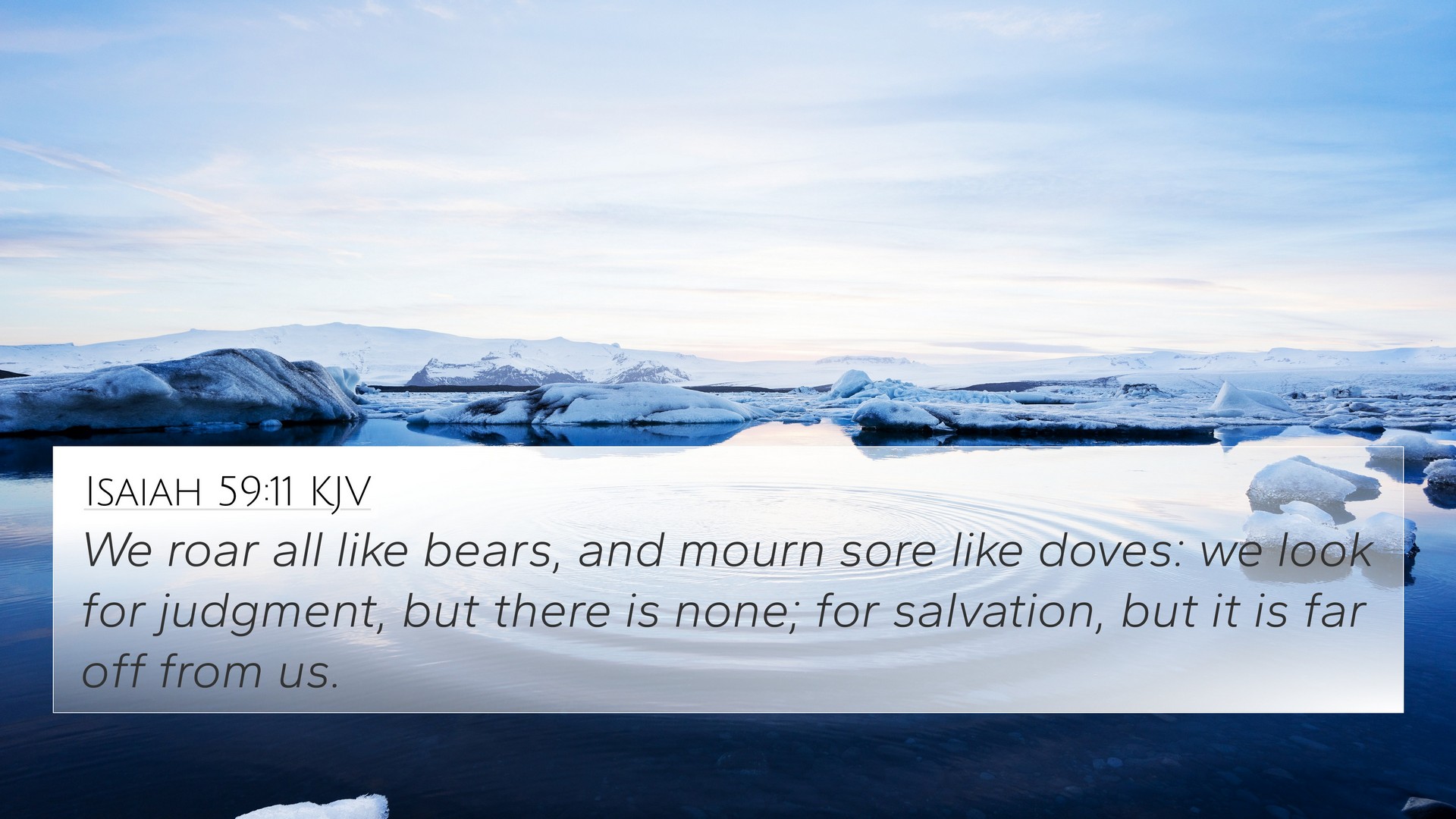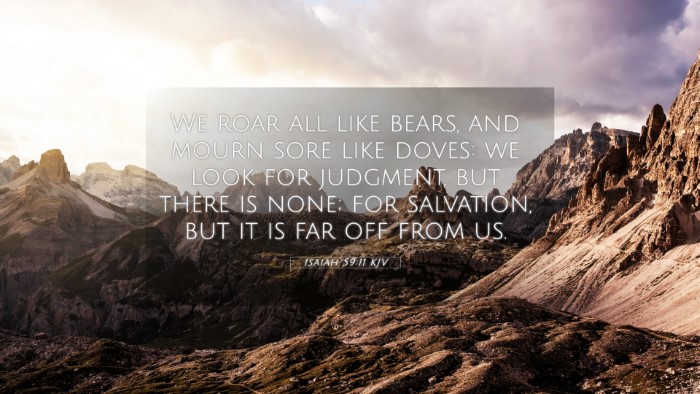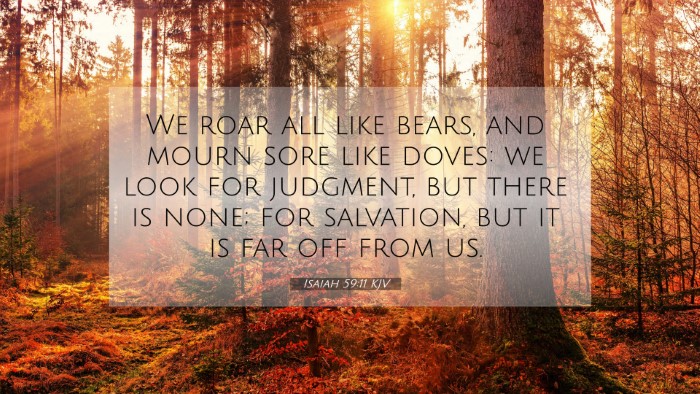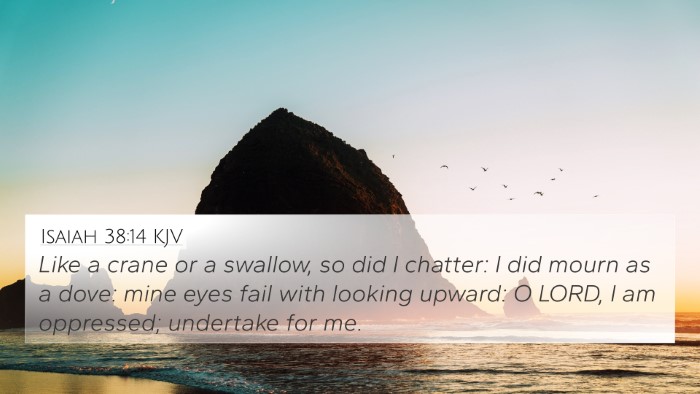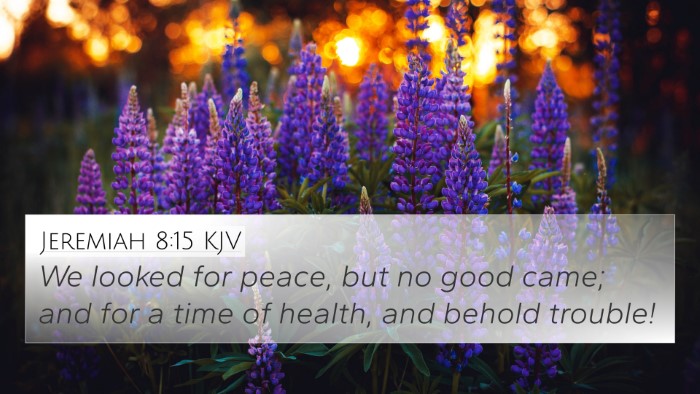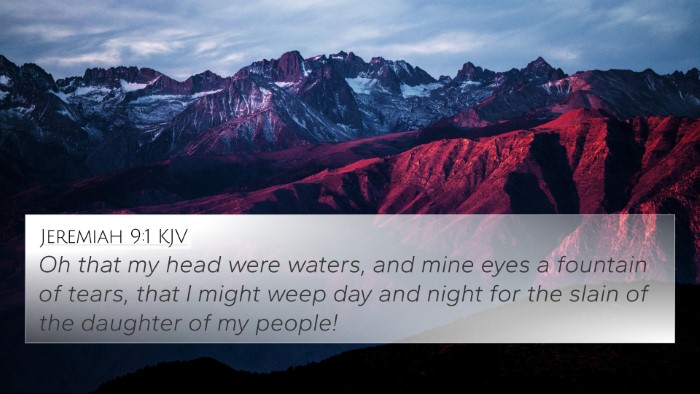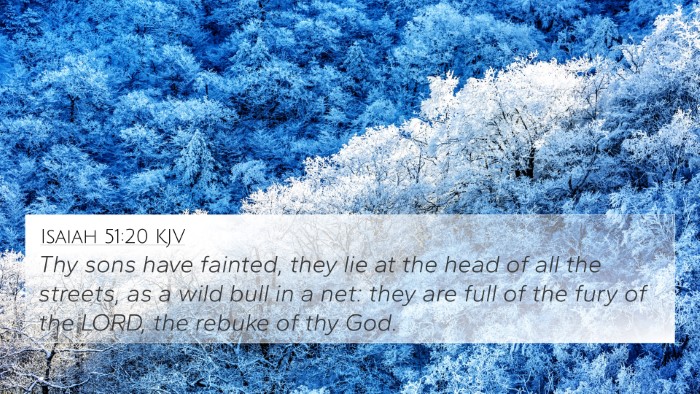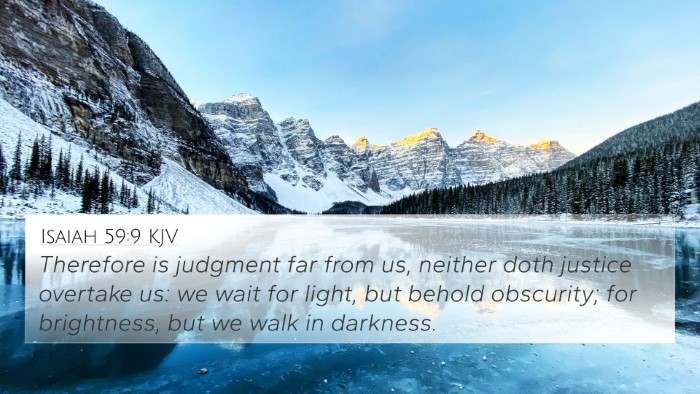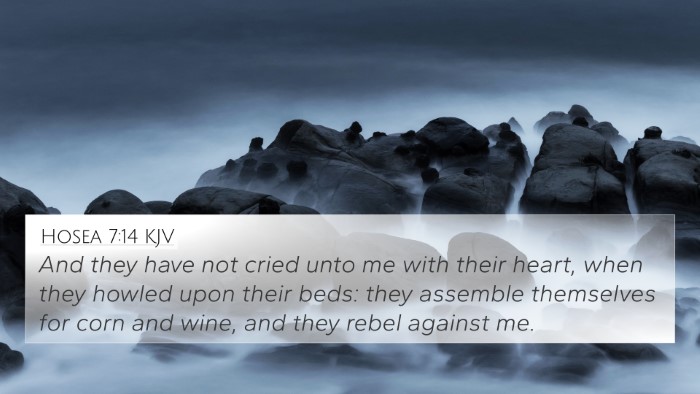Bible Verse Meaning and Interpretation of Isaiah 59:11
Isaiah 59:11 states:
"We roar all like bears, and mourn sore like doves: we look for judgment, but there is none; for salvation, but it is far off from us."
Summary of Insights from Commentaries
This verse reflects the deep anguish and desperation of the people of Israel as they seek justice and salvation during a time of spiritual and moral decline. The imagery of roaring like bears and mourning like doves encapsulates their loud cries for help and their sorrowful lament over their circumstances.
Contextual Analysis
In this chapter, the prophet Isaiah is addressing the issue of sin among the people. The nation is depicted as being estranged from God due to their iniquities. The cries for judgment and salvation express a yearning for restoration that seems unattainable.
Commentary Insights
- Matthew Henry: He emphasizes that the people's cries symbolically represent their realization of their brokenness. Henry observes that the absence of judgment and salvation indicates God's distance, which is a result of their sinfulness.
- Albert Barnes: Barnes points out that the people feel as though they are lost and abandoned. Their lamentation is a reflection of their spiritual bankruptcy and failure to find God amidst their troubles.
- Adam Clarke: Clarke interprets the metaphor of bears and doves to illustrate the contrasts in the nature of their cries; the bear expressing a fiercer, more aggressive type of grief compared to the soft, mournful cooing of the dove. He highlights the duality of anger and sorrow in their quest for salvation.
Thematic Connections
The main themes arising from this verse reflect the pain of separation from God, the desperate search for justice, and the apparent silence of God in times of trouble. Isaiah 59:11 resonates with other Biblical passages that explore similar themes of yearning for divine intervention and recognition of sin.
Related Bible Verses
- Psalm 42:9: "I will say unto God my rock, Why hast thou forgotten me? why go I mourning because of the oppression of the enemy?" This mirrors the grief expressed in Isaiah 59:11.
- Lamentations 3:44: "Thou hast covered thyself with a cloud, that our prayer should not pass through." This emphasizes the perceived silence of God in the midst of suffering.
- Micah 7:1: "Woe is me! for I am as when they have gathered the summer fruits, as the grape gleanings of the vintage: there is no cluster to eat." This expresses similar anguish over spiritual neglect.
- Isaiah 44:20: "He feedeth on ashes: a deceived heart hath turned him aside, that he cannot deliver his soul." This relates to the notion of hopelessness when separated from God.
- Isaiah 1:15: "And when ye spread forth your hands, I will hide mine eyes from you: yea, when ye make many prayers, I will not hear: your hands are full of blood." Here, God’s refusal to hear underscores the consequences of sin.
- Jeremiah 14:19: "Hast thou utterly rejected Judah? hath thy soul loathed Zion? why hast thou smitten us, and there is no healing for us?" This lamentation reflects a similar context of despair.
- Romans 3:23: "For all have sinned, and come short of the glory of God." This New Testament reflection connects the theme of sin and need for redemption.
- John 9:31: "Now we know that God heareth not sinners: but if any man be a worshipper of God, and doeth his will, him he heareth." This suggests that separation from God results in unanswered prayers.
- Matthew 5:6: "Blessed are they which do hunger and thirst after righteousness: for they shall be filled." This verse points towards the hope of redemption for the seekers of justice.
- Hebrews 11:6: "But without faith it is impossible to please him: for he that cometh to God must believe that he is, and that he is a rewarder of them that diligently seek him." This portrays the necessity of faith in the pursuit of salvation.
Understanding the Deep Yearning for God
The emotional intensity conveyed in Isaiah 59:11 encourages readers to reflect on their relationship with God. It serves as a reminder that in times of distress, individuals often cry out for righteousness and deliverance, which may feel distant due to personal or collective sin.
Application for Today’s Believers
Modern believers can draw from this verse, recognizing that feelings of abandonment can arise during trials. It is crucial to understand the principles of repentance and seeking God's presence, as Isaiah illustrates the real struggle against sin and the heartfelt wish for reconciliation with God.
Tools for Bible Cross-Referencing
Utilizing tools like Bible concordances and cross-reference guides can help believers identify connections between verses such as Isaiah 59:11 and other scripture. This study method enhances understanding of thematic Bible verse connections and supports deeper engagement with the text.
Final Thoughts
Isaiah 59:11 presents a poignant picture of despair and hope intertwined. It invites readers to explore the broader narrative of sin and redemption through cross-referencing biblical texts, facilitating a comprehensive understanding of the scriptures that relate to each other while deepening one’s faith journey.
